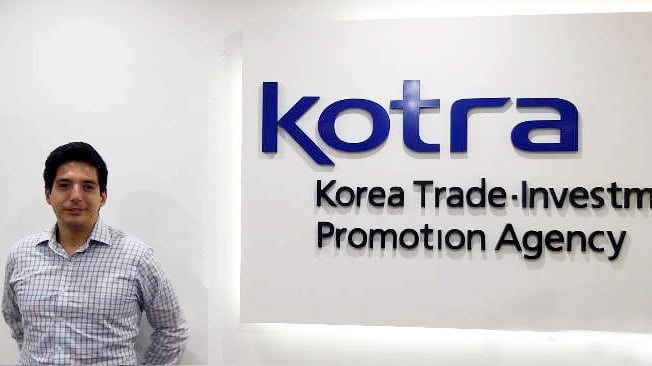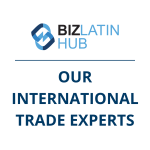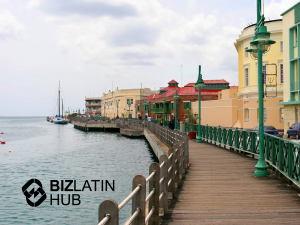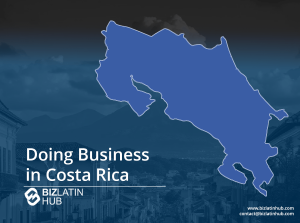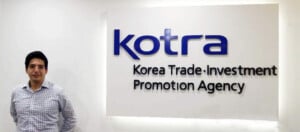
Biz Latin Hub’s Tania Perales had the privilege of speaking with Enrique Bazán, Head of the Korea Trade-Investment Promotion Agency (KOTRA) in Lima about the potential for Korean business in Peru.
Enrique shared his insights on the Peruvian industries with potential, the state of Korean companies in Peru, and cooperation between both countries that has led to productive outcomes.
What is the role and main objectives that KOTRA fulfills for business in Peru?
KOTRA is the commercial office of the Korean embassy, is a worldwide institution and has more than 120 offices in more than 85 countries.
At KOTRA in Lima, we assist Korean businesses in both Peru and Bolivia. The main role of KOTRA is to strengthen commercial relationships between Peru/Bolivia and Korea.
To achieve this, we provide support to foreign companies to invest in Korea and of support Korean micro and small enterprises (MSEs) to expand their business abroad. We also work collecting and processing commercial information between countries and help in governmental projects.
So, if a Korean company wants to enter the Peruvian market, the first point of contact would be you?
Of course, KOTRA in Korea is a respected state institution. Korean companies, especially micro and small enterprises (MSE), that want to export go to KOTRA and the institution gives them access to all countries.
KOTRA assists with something as simple as customer search or assistance to connect with companies when investors are visiting the region. For instance, if they would want to connect with other businesses in Peru.
Nowadays, doing international business is simpler than it was a few years ago because of the internet. For instance, the language issue is already in the past because you use services such as Google Translate and you can communicate. The issue of time as well; Korea and Peru are about 14 hours apart, but you can coordinate the hours. What is still missing and is what offices like this one try to help with, is cultural know-how. The culture of doing business.
In which sectors are Korean businesses most active in Peru?
In Peru, definitely for years now, the number one industry for Korean companies is vehicles. For example, Hyundai and Kia, before with Ssangyong as well, but now Ssangyong changed owners. Vehicles account for around 40% of imports. However, in recent years Korean imports have been decreasing.
There are also companies in the petrochemical sector, everything that involves plastics, this is strong here as well. For instance, LG exports a lot of finished products for the elaboration of diapers and such products. Also, another interesting market is that of the liquid natural gas (LNG) industry.
A very extensive entry in the area of health has not yet been achieved, but we expect that to change. This industry entails medications, medical equipment and all that is related.
Do you think there is potential for health businesses in Peru?
Yes, we have been encouraging this in the past few years. The problem with the health industry is that it can be a complex issue, a lot of investment is needed; and unfortunately in Peru participating in tenders isn’t that simple.
In addition, there are some markets that present strong entry barriers. But we do bet for Korea. Since Korea is a global manufacturer of medicines, this could be a very attractive market for Korean companies. But it is a job that has to start little by little.
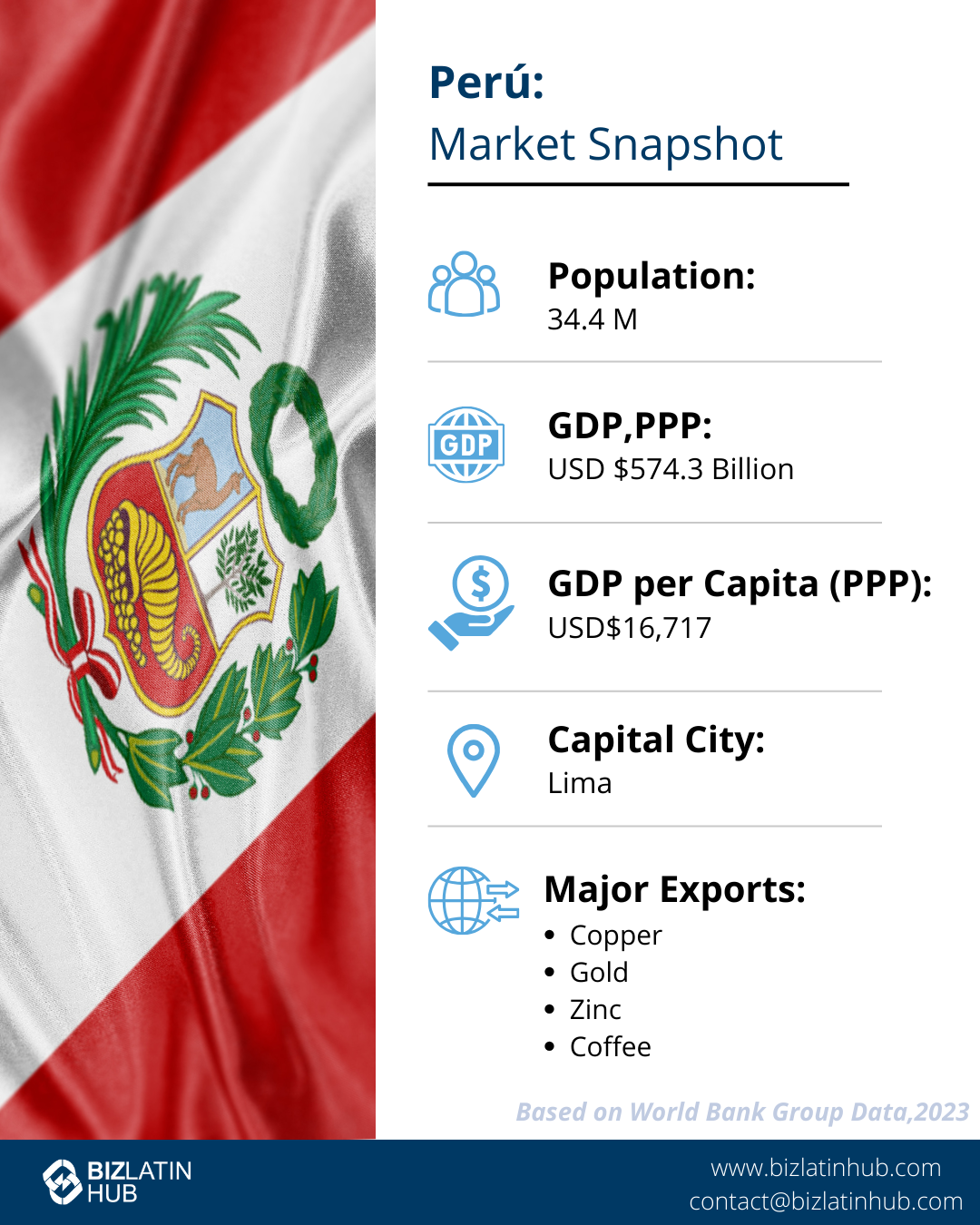
Are Korean companies producing medicines that are in demand in Peru?
The largest number of purchases of generic medicine is made by the state and the largest amount of these molecules is purchased by tenders that count price as the main variable, for instance, through an inverse auction.
This market is dominated by pharmaceutical companies from countries such as India and China.
Many Peruvian laboratories that have a link to Korean laboratories already know that they are not likely to participate in these types of products.
There are several Korean records in biologic medicines. These are mostly cancer drugs, but the problem is that Korea normally uses the Korea Food and Drug Administration (KFDA) registration, and when you want to register a Korean product here you are asked for the American Food and Drug Administration (FDA). This means that many Korean pharmaceutical companies do not have it, which delays the issuing of registries a bit.
The good thing is that we already have an endorsed “pharma-copedia” and Korea is a country of high health surveillance, so when you register a new biological product, which perhaps does not exist, the Ministry of Health does not have to travel to Korea and all that. This has improved time efficiency a bit.
When Peru gives the issue of high health surveillance status it is very important because this entails much much easier processes, but still, it can be difficult to get the Korean health registry.
Similar to the pharmaceutical market, another interesting market with more presence in European countries is that of electric vehicles. How do you see this market in Peru?
There is still no regulation for electric vehicles. There are several Korean companies that have already come to Peru, more than anything to explore a bit. Just last year we had a business conference on that topic. But the problem is that there is still no clear regulation here, as long as there is no regulation, no Korean companies will be able to invest.
Technologies are increasingly important due to the impact on efficiency, automation, and innovation that they have on industries. Korea is known for its technological advances and innovation. Is there a collaborative project or initiative with Peru in this area?
Normally when we think of South Korea, we think of advanced technology. Among the projects that South Korea has developed in Peru, we can mention projects with the Ministry of Interior, SIMA, among others.
These projects were carried out by Government-Government agreements, in which South Korea offered innovative products to those in the market.
The Korean cosmetic industry is well known for its quality. Do you know if Korean cosmetic products are entering the Peruvian market or if there is interest in this area?
Yes, we receive quite a few proposals from cosmetic companies. In Korea, there are a lot of brands interested in Latin America.
The issue for businesses in Peru is that the public that consumes these types of products is still very small. We see people who are fans of K-POP, people who like the quality of Korean cosmetics, and we expect this to grow in the coming years through promoting efforts.
In addition, there is an attractive young market, but they are guided by advertisements and the investment in department stores. In the midst of this, Korean companies have not yet made big investments in the country, they have started in countries such as Mexico.
A key point to highlight about this market is that businesses in Peru achieve sales through catalogs. Companies such as Unique, Yanbal, Natura, etcetera. This can be a kind of business in which Korean companies can begin to enter the market, given the low entry costs.
Peru’s agriculture is a sector that is gaining a lot of interest. For instance, in the ‘superfoods’ area: maca, quinoa, and camu camu. Do you think this can be a good export market for countries such as Korea?
Of course, in Korea, ginseng (Korean medicinal plant) is one of the most consumed agricultural products and there is a growing demand for products such as maca.
At the food fair in Korea, Seoul Food, in the past few years, Peru has had its own pavilion, coordinated through the state agency Promperú.
What are the points you consider Peru can improve on to better international trade and attract more investment?
There must definitely be a change in regulation to open ports for faster business creation. This is something that can be improved.
In order to attract more investment, some processes must be modified, politics of markets must be strengthen and begin with reforms to generate opportunities for growth in all regions.
The processes to create new businesses must be shortened.
There is also regulations in certain sectors that prevent the entry of new products and the formalization of the different sectors.
What are the positive aspects to doing business in Peru?
Peru is a country that has been growing steadily, every year it is showing significant growth as compared to the rest of the region, making the country one of the most attractive destinations for investment.
The financial system is reliable, as well as the legal framework that protects all investors.
In the coming years, big projects are to be executed, including the mining and infrastructure sector. These projects also entail the growth of agriculture and mass consumption.
We enable foreign entrepreneurs to do business in Peru
Steady economic growth and macroeconomic fundamentals support foreign executives to do business in Peru. Many industries such as agriculture, mining, pharmaceutical, software technology, cosmetic products, amongst others, have great potential.
When entering the Peruvian market, consider that the country’s regulations and procedures in the country can be complex. In this sense, it is strongly advised that foreign companies contact local experts for support setting up.
Biz Latin Hub’s team of expert local and expatriate lawyers and accountants can help. We help bridge bureaucratic gaps to support your business incorporation and we offer legal, commercial, accounting and human resources solutions to help you get started in the promising Peruvian industries.
Contact us now for more information.
